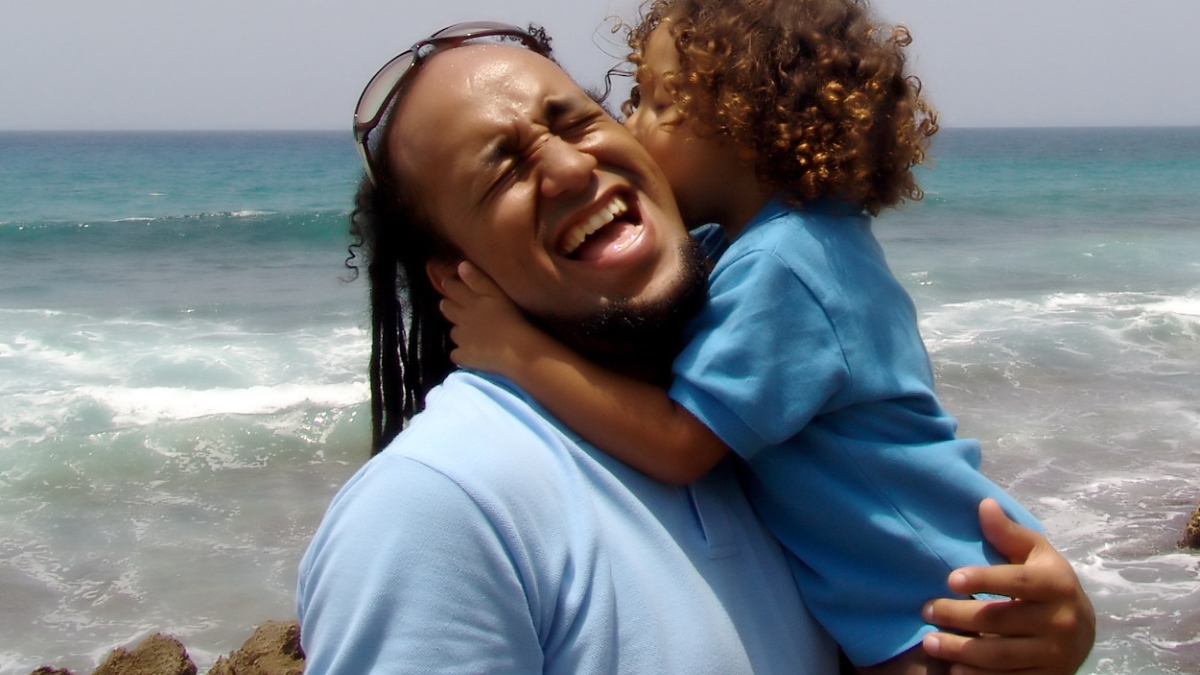Editor's note: This story is being highlighted in ASU Now's year in review. To read more top stories from 2017, click here.
In the aftermath of a separation or divorce, there are real choices that need to be made about where the kids will spend the night.
Some parents and prominent psychologists have worried that if infants and toddlers frequently spend the night at their father’s home, it might disturb the children’s relationship with their mother. But new research from Arizona State University shows that children, no matter what their age, benefit from having time with each parent that includes sleepovers at each home.
The study, “Should Infants and Toddlers Have Frequent Overnight Parenting Time With Fathers? The Policy Debate and New Data,” was published Feb. 2 in the American Psychological Association journal Psychology, Public Policy and Law.
“Not only did overnight parenting time with fathers during infancy and toddlerhood cause no harm to the mother-child relationship, it actually appeared to benefit children’s relationships with both their mothers and their fathers,” said William Fabricius, ASU associate professor of psychology and lead author of the study. “Children who had overnights with their fathers when they were infants or toddlers had higher-quality relationships with their fathers as well as with their mothers when they were 18 to 20 years old than children who had no overnights.”
The study, co-authored with ASU graduate student Go Woon Suh, revealed that the amount of parenting time small children had with their fathers during childhood and adolescence did not make up for the overnights they missed in their first few years.
For fathers, Fabricius said, every increase in number of overnights per week during infancy and toddlerhood was matched by an increase in the strength and closeness of their relationships with their grown children. The grown children who had the best relationships with both of their parents were those who had equal numbers of overnights at each parent’s home during infancy and toddlerhood.
Importantly, these findings were the same regardless of whether courts ordered overnight parenting time over the mother’s initial objections, or parents agreed on their own to provide equivalent overnights. Likewise, the findings were the same for parents who had high conflict and those who had low conflict during the first five years of their divorces, the study found.
The benefits to the father include getting him more involved in the child’s early life.
“Having to care for their infants and toddlers for the whole cycle of evening, bedtime, nighttime and morning helps dads learn how to parent their children from the beginning,” said Fabricius, who studies father-child relationships and the impact they have on the child’s health and well-being. “It helps dads and babies learn about each other, and provides a foundation for their future relationship. Other studies have shown that programs that encourage married dads to take more responsibility for infant care help those dads learn better parenting skills, and we think that the same kind of thing happens when divorced dads have overnight parenting time.”
The mother-child relationships were better when children had any number of overnights with dad; perhaps, because sharing overnights helped mothers avoid the inherent stress of having to be a single, full-time parent of an infant or toddler. And having good relationships with mom and dad, even when not living together, bodes well for the children.
“Good quality relationships with parents in young adulthood predict better stress-related physical and mental health for the children later in life,” Fabricius said. “So in a real sense, this becomes a public health issue.”
Top photo: ASU research shows that every increase in number of overnights with dad during infancy and toddlerhood was matched by an increase in the strength and closeness of their relationships with their grown children. Photo courtesy of Freeimages.com
More Science and technology

ASU-led space telescope is ready to fly
The Star Planet Activity Research CubeSat, or SPARCS, a small space telescope that will monitor the flares and sunspot activity of low-mass stars, has now passed its pre-shipment review by NASA.…

ASU at the heart of the state's revitalized microelectronics industry
A stronger local economy, more reliable technology, and a future where our computers and devices do the impossible: that’s the transformation ASU is driving through its microelectronics research…

Breakthrough copper alloy achieves unprecedented high-temperature performance
A team of researchers from Arizona State University, the U.S. Army Research Laboratory, Lehigh University and Louisiana State University has developed a groundbreaking high-temperature copper alloy…


